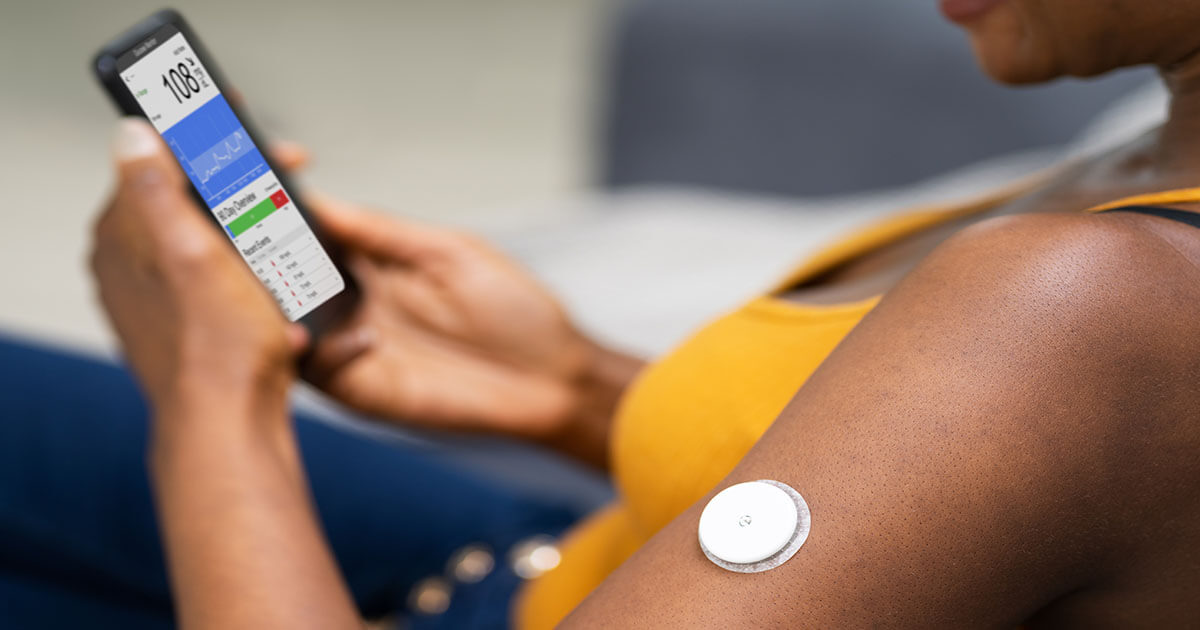The commitment of Diabetes UK (previously The British Diabetic Association [BDA]) to patient and community care has always included the promotion of local voluntary groups. The Diabetes UK website states that they are the lifeblood of the charity. There are more than 330 local adult groups in the UK but fewer than 30 parent or children’s groups.
Managing diabetes in children and young people cannot be accomplished successfully by simply prescribing treatment. Complex family, social and emotional interactions influence how the condition is understood and managed. It would seem that an increase in the number of parent and children’s Diabetes UK voluntary groups would bring many potential benefits.
The Leicestershire Parents’ Group of Diabetes UK (LPGDUK) was first established in 1975 by Dr John Hearnshaw, an adult physician with a particular interest in childhood diabetes, and his wife. Nearly 40 years later, current members of LPGDUK describe the advantages of the group as:
- Practical and emotional mutual support from a network of parents and their children with a sharing of experiences from the time of diagnosis.
- Greater understanding and practical education for parents and children outside the hospital environment.
- Events for parents and children.
- A mechanism for making friends with common goals.
- Enhancing liaison with health services and identifying both the successes and deficiencies of the service.
- A collective voice to improve services.
- An action group for charitable fundraising.
- A communication network (through the website and email).
The group attempts to make itself known to all parents of newly diagnosed children with diabetes. They can only do this with the assistance of the local hospital diabetes team. Some parents join the group immediately after diagnosis but others may join months or even years later. Like all voluntary organisations, the activity levels and success of the group waxes and wanes depending upon the enthusiasm, energy and commitment of the committee members, but past and current LPGDUK committees have been very active and innovative in organising regular support meetings, education days and fundraising activities, publishing newsletters, developing a website and email contact list and, for many years, overseeing the development of our local events and holidays for children.
Diabetes UK’s activities and camps for children
The organisation of holidays, camps, outward-bound days, family weekends and other activities has been an important and successful part of the association’s youth services almost since its inception in the 1930s. When first appointed as a specialist diabetes consultant paediatrician in 1979 my understanding of living with diabetes improved rapidly by being able to act as medical officer on a number of BDA camps. One of my early experiences was travelling with a group of teenagers by coach to Denmark. I was woken in the middle of the night by a thumping on the back of my seat and found that one of the boys was having a major hypoglycaemic attack with fits. This was the first time I had seen a severe hypo and it was quickly reversed with glucagon. Many consultants, paediatric diabetes specialist nurses (PDSNs) and other healthcare professionals may go through their careers without such first-hand experience.
In the 1980s, the BDA camps were often two weeks long and well over 1000 children from around the UK attended each year. The holidays were overseen by a children’s committee of the BDA that met regularly at the association’s offices. This was disbanded some years ago but, in recent years, Diabetes UK has been able to provide about 200 children’s holiday places. Staff on these holidays had to work hard and would learn more about living with diabetes in two weeks than they would spending a lifetime behind a desk.
After two weeks of exciting activities, the children would disperse to different parts of the country never to meet again as it was difficult to maintain the friendships they made at camp. A plan was mooted to organise local holidays for the children in Leicestershire. In this way, members of the diabetes team would get to know the local children better and gain a greater understanding of their diabetes management, food fads, behavioural characteristics and personalities, and thus gain a deeper understanding of what the families had to deal with 24 hours a day. It would also mean the professional helpers could be seen in a less formal light which could help build up trust and supportive relationships.
After a trip to the USA in 1983 to look at the variety and organisation of some well-established diabetes camps there, a proposal was made to LPGDUK that it should organise a local holiday along the lines of BDA and the American camps. Camp Charnwood, an annual holiday near Charnwood Forest for children and adolescents, was created and it rapidly became a shining example of child/parent/professional cooperation.
In 1984, numerous parents and other adults with diabetes signed up to become involved with the project. In the early days, some of the diabetic health visitors (the antecedents of the PDSN) were somewhat sceptical that parents could organise a safe and educationally sound event but, as time went on, the nurses and dietitians became some of the greatest supporters of Camp Charnwood. They also said that they learnt a huge amount about the practical aspects of living with diabetes day by day. The camp also helped to enhance relationships with the parents and children.
Over the years the objectives behind the camp have been:
- To give the children and young people a fun holiday in a safe environment.
- To teach the children to live with diabetes without the constant attention of parents, thus giving them a new sense of independence and confidence.
- To introduce new activities that they might otherwise never experience and learn to manage their diabetes during these activities.
- To meet new friends and benefit from their knowledge and support – to feel normal by being surrounded by others who also have diabetes.
- To absorb informal diabetes education by taking part in activities.
Until 2013 the camp was held at Quorn Hall International Education Centre which has dormitories and a camping area. The surrounding grounds were perfect for outdoor games and were adjacent to the river Soar where the young people could go canoeing. The camp has recently moved to another venue, Beaumanor Hall.
Most of the organisation and running of the camp is done by groups of parents and young adult helpers with diabetes. They are assisted by doctors, nurses and dietitians from Leicester Royal Infirmary. About 50 children aged 7–16 are chosen to go on the camp and priority is given to those who may not have another opportunity for a holiday with their family or those having problems with their diabetes management. A couple of months before camp there is a taster day of activities at the venue followed by a barbecue for the parents and children.
The over 12s are looked after by helpers who are most interested in caring for teenage groups. They organise some activities, such as visits to an artificial ski centre, 10-pin bowling, Laser Quest or go-karting.
The younger children are divided into small groups of 3 to 5 children according to age who are looked after and supervised by two adult helpers. Over the years the group has developed comprehensive child protection, welfare and safeguarding guidelines in conjunction with Diabetes UK and, of course, all helpers must have disclosure and barring service (DBS, previously known as CRB) checks.
As the children and parents arrive at camp they are introduced to their group helpers, all their diabetes details are registered and they are shown their bedrooms. Then the essential safety and fire drills are performed, encouraging the children not only to look after themselves but also each other. Most of the children – even though they may attend the same hospital clinics – will not have met each other before or talked to other young people with diabetes. They have never seen someone else having a hypo and such experiences undoubtedly enable children to care for others in that situation. During the holiday they learn some basic principles of hygiene to prevent infections by using only their own labelled water bottles, washing their hands regularly and being aware of signs of hypos in the people in their groups.
Fun and activities
For many years the camp has run from Wednesday morning until Sunday afternoon. The variety of activities that have been organised over the 30 years of Camp Charnwood is enormous. Water sports on the local river and at Rutland Water, sailing, raft building and racing, canoeing and windsurfing have all been popular (Figure 1). Treasure hunts, indoor quizzes, fun games about diabetes, painting, drawing, outdoor mini-Olympics, falconry, swimming, skating and archery have all featured. We always include a longer walk, sometimes in the Derbyshire Dales, and also a day out at a theme park, which is extremely popular with the young people. Such high levels of activity makes it imperative to plan adjustments to carbohydrate intake and insulin doses, which are talked through by staff in evening meetings. This is particularly important for those children who are not used to vigorous or prolonged physical activity.
After the Saturday evening meal there is a talent show followed by a fancy dress disco. After Sunday morning activities there is a barbecue and, when the parents arrive to pick up their children, there is a prize-giving where everyone is awarded at least one prize. Young ones might, for instance, win a prize for doing their injection for the first time, whereas a teenager might win a prize for brilliant abseiling.
Finances
The total cost for the first holiday in 1984 was £1540, compared with recent costs in excess of £16000. We make the holiday inexpensive for the children and it is currently £75 for the five-day holiday. Some less well-off families do not have to pay anything and some parents give us additional donations. About £3000–4000 can be collected in this way, the rest of the money coming from sponsorships and fundraising. Pharmaceutical firms donate relatively small amounts, whereas, in the past, one insulin company would donate almost the entire cost. So fundraising activities throughout the year and applications to trusts, charities and companies help to pay the bills.
Skiing holidays
In 1991, a boy with diabetes whose father was developing a ski chalet company joined the group and after some collaboration, annual ski trips were set up. The group teamed up with a clinic in London and for 17 years we had wonderful experiences of skiing in different French resorts. Several youngsters became so accomplished that they have subsequently been employed as chalet staff and ski guides. One lad was so impressed by the chalet chef that he started training as a chef. One of our regular Camp Charnwood attendees who became an expert skier was Richard Mayne who in 2014, while studying at Leeds University, completed a trek to Everest Base Camp. He gave a wonderful illustrated talk to the group and described his experiences in this journal (Mayne, 2014). He spoke warmly of the influence that Charnwood Camp and skiing holidays had on his whole outlook on life and, in particular, his determination not to let diabetes inhibit his activities in any way. Richard tragically lost his life in the Malaysia Airlines MH17 disaster in July 2014, but his story remains an inspiration.
Outcomes
The benefits and spin-offs of the out-of-clinic activities go far beyond just learning how to cope with diabetes. In the first few years we circulated questionnaires to all parents and children asking for their views on the camp and for any additional comments and suggestions. About 70% of replies were extremely positive. Many children had never been away from home for more than a couple of days, most often because the parents had a fear of letting them go. Virtually all children described having a really enjoyable holiday, many said they made new friends and, for the first time, they felt they were not alone. They met others who (often quite literally) were “in the same boat”.
Parents reported that other children and parents they met had similar worries and were able to express these in the more relaxed atmosphere before and after camp. Surprisingly, nearly 50% indicated that they had made adjustments to food content or diet after the camp. Several made changes to their injection techniques or insulin management. Frequently, parents commented that their children had developed much greater confidence and independence (even after such a short time away) and they were now happier to let their children go on sleep-overs and school trips. Parents of younger children commented that they were having fewer problems with injections and blood testing. One parent said that the camp was “far more important than clinic!” Also, both children and parents have developed supportive and lasting friendships.
There is little doubt that the healthcare professionals who have been involved in the camp have benefitted greatly from it. They gain greater understanding of hypos and they get to know their patients better, becoming more aware of the hour-to-hour variability of behaviour and blood glucose control when children are just living their lives. Most importantly, they begin to understand the profound impact that diabetes has on the young person’s whole family.
One of the most gratifying outcomes is the number of young adults who have attended camp as children who later become helpers. They are invariably very reliable and supportive leaders and they provide strong role models for the younger people. Interestingly, some of these youngsters who had troubled personal backgrounds or real problems with their own diabetes felt that they had turned the corner when they had grown up and wanted to give something back to the camp that had helped them so much in their younger days. Several parents over the years who have helped at camp have ended up changing their lives in very positive ways because they have become more confident and outward-looking.
The future
Last year (2013) was the 30th Charnwood Camp but, unfortunately, Quorn Hall had became unavailable. It was moved to another venue, Beaumanor Hall, with rather different facilities and accommodation but an excellent activity centre. This big move and the impending retirement of several influential staff members will not diminish the enthusiasm shown by so many parents and young helpers who will guarantee the continuing success of Camp Charnwood.
Diabetes management has, in recent years, become more intensive, intrusive and, in some respects, more complicated with the availability of new insulins, pumps, continuous glucose monitoring and, in particular, the introduction of precise carbohydrate counting. Not everyone can cope with such intensive management. It is almost certainly unrealistic and unnecessary to be fixated by single-figure gramme counting and minute insulin adjustments at each meal. An overzealous approach to metabolic control can have an effect on group dynamics at events such as Camp Charnwood where exercise, activities and behaviour are so unpredictable and variable. Mealtimes seem to have become so complicated for some children and their helpers that by the time the carbohydrate intake has been calculated, insulin/carbohydrate ratio consulted and a decision is made on the insulin dose and timing, their food has gone cold. This may detract from the enjoyment of mealtimes and perhaps this over-intensified approach is storing up compliance problems for the future. It does, however, highlight the real need for education for children, parents and healthcare professionals. Camp Charnwood helps children and parents to realise that they can adapt their diabetes management to suit different circumstances and some of our parent helpers have become experts on pumps and insulin/carbohydrate ratios.
In this transition year between venues and staff, the group wanted to find out whether the camp is still valued and should be continued. Questionnaires were given to all parents, children and helpers. The results were an exact replica of those from 25 years ago with almost total satisfaction and gratitude from parents, describing happy children who had enjoyed a fun experience, gained confidence, made friends, learnt new things about diabetes and how to cope with it better. Here are some of the comments we received:
“She seems happier after camp – she gets a lift.”
“He feels alienated at school (because of the diabetes) but at camp he appreciates that he’s not alone.”
“I attended camp when I was young and I will never forget the fun I had and the confidence I gained in managing my diabetes. Charnwood should be seen as the benchmark for all diabetes groups.”
“Don’t ever cancel Camp Charnwood!”
“The most fun I’ve ever had!”
These comments offer a huge endorsement and compliment to the marvellous, dedicated group of parents, young adults and healthcare professionals who organise the camp and the parents’ group.
As a paediatrician who has had the privilege of helping to care for thousands of children with diabetes over the past 40 years I think the misgivings of professionals in the early days that parents would not have the expertise or skills to give out the right messages (compared with the doctors and nurses) was absolutely wrong. Parents look after children with diabetes for 24 hours a day, 365 days each year. Their practical experience is far more comprehensive than that of any healthcare professional who has not lived with diabetes, and it is able to be passed on to other parents and children to great effect.
Following this article about this local Diabetes UK parent support group and all its activities, it is hoped that parents and healthcare professionals in other areas will understand how working together can be a source of great benefit for children with diabetes and their families – and perhaps an increasing number of parent support groups will be established.





NHSEI National Clinical Lead for Diabetes in Children and Young People, Fulya Mehta, outlines the areas of focus for improving paediatric diabetes care.
16 Nov 2022